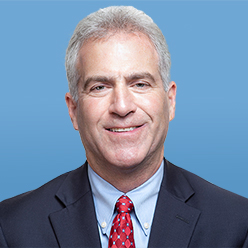“Society is in a state of explosion,” an official from Iran’s Islamic Revolutionary Guard Corps (IRGC) warned in a leaked seven-page state document that Radio Free Europe/Radio Liberty recently reported on, and “social discontent has risen by 300 percent in the past year.”
Iran’s clerical army has good reason to be worried. Rising public discontent, officials acknowledge, is driven by its sinking economy, which has been battered by tough U.S. sanctions related to Iran’s nuclear program as well as Tehran’s economic mismanagement.
All of which raises an important question or two for Washington: Why push so hard for an agreement that would revive the 2015 global nuclear deal with Iran and lift those crippling sanctions? Why not let the sanctions, which seem to be threatening the stability of Iran’s dangerous theocracy, keep working?
The talks over reviving the 2015 deal — officially known as the Joint Comprehensive Plan of Action, from which President Trump withdrew the United States in 2018 — resumed last week in Vienna, and U.S. and other officials suggest that a deal may be in sight.
The Biden administration certainly seems eager for that to happen. Secretary of State Antony Blinken signed waivers last week that will lift some sanctions on Iran’s “civilian” nuclear program, enabling foreign countries and companies to work on civilian projects at various Iranian nuclear sites.
U.S. officials say that the waivers do not represent up-front concessions to Tehran as part of the Vienna negotiations. “We did NOT provide sanctions relief for Iran and WILL NOT until/unless Tehran returns to its commitments under the JCPOA,” State Department spokesman Ned Price tweeted.
Really? In a report to Congress, the State Department said the waivers would “help to close a deal on a mutual return to full implementation of the JCPOA and lay the groundwork for Iran’s return to performance of its JCPOA commitments.”
Either way, perhaps Washington should hit the pause button on the Vienna talks for various reasons.
First, U.S. officials acknowledge that a revived JCPOA will be weaker than its predecessor in at least one way: Unlike the original deal, which was designed to leave Iran about a year away from developing enough enriched uranium for a nuclear bomb, officials told the Wall Street Journal that the time frame under a revived deal will be “significantly less than a year” because Iran’s nuclear program “had advanced too far.”
Second, Israeli Prime Minister Naftali Bennett has made clear that his government fiercely opposes a revived deal and that “Israel will maintain freedom of action in any case, with or without an agreement.” In other words, Jerusalem will take military action to cripple Iran’s nuclear program if, at any point, it feels that Iran’s nuclear and related military programs pose an undue threat. If Washington hopes that a revived deal will help stabilize the region, it may be sorely disappointed.
Third, and most importantly, a revived deal would give Iran tens of billions of dollars in sanctions relief, which it could use not only to nourish its military strength and terrorist support, but also to address its economic woes. That, in turn, may reduce public discontent and strengthen the regime.
Why would we do that? Iran’s nuclear pursuit threatens the United States and its allies precisely because of the nature of this regime, which seeks to expand its Shia-based revolutionary doctrine across the regime and, as part of those efforts, tries to de-stabilize Sunni Arab governments. It funds, trains, and directs terrorist groups in the region and elsewhere. And, while vowing to destroy Israel, it works to undermine America’s regional presence. The more Washington can weaken the regime, the better.
Sanctions are working as well as Washington could have hoped.
According to the leaked document, one official said that “several shocks” — including skyrocketing inflation and sinking stocks — have “shaken public trust” in the government of President Ebrahim Raisi. While inflation was reportedly about 40 percent last year, another official said that the true figure was between 86 and 268 percent for basic food items.
Protests by teachers, nurses, and other workers — already a common phenomenon in Tehran and other major cities in recent years — have grown in number by almost half over the year that ends on March 31, as has the number of protestors attending them. Rather than blame the United States for imposing sanctions, protestors are aiming their ire at their own government.
Nobody knows when public discontent might succeed in toppling a regime, whether in Iran or elsewhere — but with the odious regime in Tehran on its heels, perhaps Washington should slow its push for a nuclear deal and the sanctions relief that it will inevitably bring.
Lawrence J. Haas, senior fellow at the American Foreign Policy Council, is the author of The Kennedys in the World: How Jack, Bobby, and Ted Remade America’s Empire, from Potomac Books.
